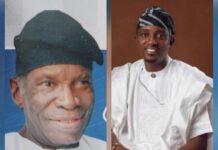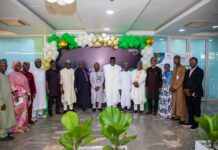The crises that greeted the February 25 presidential election are not likely to be over until the intervention of the Supreme Court. Since the birth of the presidential system of government in Nigeria in 1979, no presidential election has been decided by the ballot but by the Supreme Court. For the last election, candidates of the Peoples Democratic Party, Alhaji Abubakar Atiku, and the Labour Party, Mr. Peter Obi, are already at the court of appeal. This is the court of first instance in any presidential election dispute. As should be expected, the election results as announced by the Independent National Electoral Commission has thrown up so many questions. Resolutions of those questions appropriately are most likely to deepen democracy and at the same time, help a lot in future elections. Learning appropriate lessons from such resolutions, especially by the electoral body and politicians, will, to a great extent, reduce political acrimony in the country.
1. INEC’S UNDER-PERFORMANCE: When compared with pervious elections in the country, INEC could not be said to have performed woefully as some politicians had scored it. At the same time, it would be economical with the truth when one gives a thumb up to the commission.
Even the INEC Chairman, Professor Mahmood Yakubu, in his post election meeting with resident electoral commissioners admitted some hitches and glitches in the election. To be specific, when Dino Melaye of the PDP took up the chairman as to why the election results were not uploaded into the server at the end of the polls as required by law? Professor Yakubu replied him that he would answer this question the day after. So far, he has not. The only reference to this by the chairman were the glitches and unforeseen circumstances, which he said, went with the election. These, according to him, would be taken care of and forestalled in the March 18 elections. He did not explain further. The absence of any explanation for the glitches could be misconstrued politically. Overall, INEC did not do a thorough job, but we have to accept the little it was able to offer and move on.
2. RESULTS AND DEMOCRACY: Of the total votes of 23,377,466 credited to the top four in the election, Asiwaju Ahmed Bola Tinubu, who topped the results, scored 8,794,726. This represents 37.6 percent of the votes of the principal gladiators. Simply put, 62.4percent of electorate did not want him as their president. It would have been very interesting if the early political scientists and philosophers, Aristotle, Plato, Thomas Hobbes, Adam Smith, Niccolo Michiavelli e.t.c, were alive to defend their definition of democracy as government of the people by the people and for the people.
With these results, our current political scientists have a lot of research to do. The world certainly needs another definition of democracy. In the alternative, they may have to come up with another means of getting a representative government, which will be a true reflection of the wishes and choices of the people.
3. CHALLENGES BEFORE TINUBU: Arising from the results of the election is the issue of legitimacy for the president – elect. The results say it very clearly and loudly that all is not well at all politically in the country. It will be very unwise to gloat over such results. Tinubu won in 12 states out of 37. This is just 32percent of the country geographically. The president-elect and his strategists should just go back to the drawing board and come up with a broad based and transnational action plan that will restore life back to an average Nigerian.
4. STATE OF THE APC: The results of the election clearly exposed the APC as a failure. In the 2019 elections, Nigerians almost gave the party an overwhelming control of the country. Four years later, the party only managed to win the presidential election only in 12 states. It is certainly a vote of no confidence on President Muhammadu Buhari and the party. The party was a complete liability to its presidential candidate. But for governors Nasir El-Rufai, Babagana Zulum, Abdullahi Ganduje and a few others, the APC would have lost the election.
While the president allowed himself to be held hostage in the Aso Rock, dishing out obnoxious and anti-people policies, El-Rufai and co rallied round Tinubu and gave him the needed support during the electioneering. Unless the president-elect manages his victory very well, performs outstandingly and humbles himself before Nigerians, the results of future elections for the party are too obvious.
5. PETER OBI AS THE HERO: The hero of the election is undoubtedly, Peter Obi, the presidential candidate of the Labour Party. Cashing in on the mood of the youth and the state of the nation, Obi was smart enough to rally young voters across the country behind himself to make a very impressive and outstanding outing at the polls. This is in addition to religious sentiment which swayed millions of votes to his party. Of the four major contenders, he is the only Christian. Even not in the United States and United Kingdom in recent history, has a third force made such an inroad in a national election. Instead of deluding himself that he won the election, Obi should celebrate and manage his success very well by sustaining the loyalty and commitment of young Nigerians for future elections.
6. PROPHECIES: One very remarkable feature of the election were prophecies of ‘men of God’. God ‘told’ some of them that the election would not hold. Some claimed that the ‘voice of God’ they heard was not in favour of Tinubu. In particular, one of them in his cassock, said God told him Tinubu was completely out of reckoning in the election and that if Tinubu won, God did not exit. Both Atiku and Obi said Tinubu did not win the election. Atiku said he won and by the same token, Obi said he won. Go and ask members of the inner caucus of both Atiku and Obi, their claim of victory was predicated on the prophecies of ‘men of God’ and marabouts around them.
7. OLUSEGUN OBASANJO: Midway into the announcement of the election results by the INEC, former President Olusegun Obasanjo in his usual character, threw a bomb shell. He wanted INEC to stop the announcement, cancel elections in areas where he said the commission was found wanting and rescheduled elections in these places for March 4. He told President Buhari to ensure INEC’s compliance with his directive. For his crude interference, I believe he was given more than he bargained for by well meaning Nigerians. Here was a man who wanted to subvert the constitution in 2006 by his infamous third term agenda. Let us also remember the 2007 elections, which he said, were a do or die affair. The same Obasanjo had a candidate in the election known to every Dick and Harry. A statesman indeed!
8. THE YORUBA NATION: A major fallout of the election was the exposure of the descendants of Oduduwa. But for the commitment of Governor Seyi Makinde to equity, justice and fairness, the Labour Party, a predominantly Igbo party, would have won three of the six states in the South West. What is most worrying about the performance of Tinubu in the region compared with that of Obi in the East, was the open campaign against him by elders in Yorubaland who are in their late 70s, 80s and 90s. Even after seeing the outstanding results of Peter Obi in Anambra, Enugu, Ebonyi, Abia and Imo States, these so called elders still wanted Tinubu to lose Lagos State in the governorship election. Haba! What could have Tinubu done to wrong those individuals that would make them prefer an Ibo party take over of Yorubaland? The February 25 election was certainly an eye opener for the Yorubas to wake up from their slumber and do the needful before the region is overrun politically by the Igbo.






